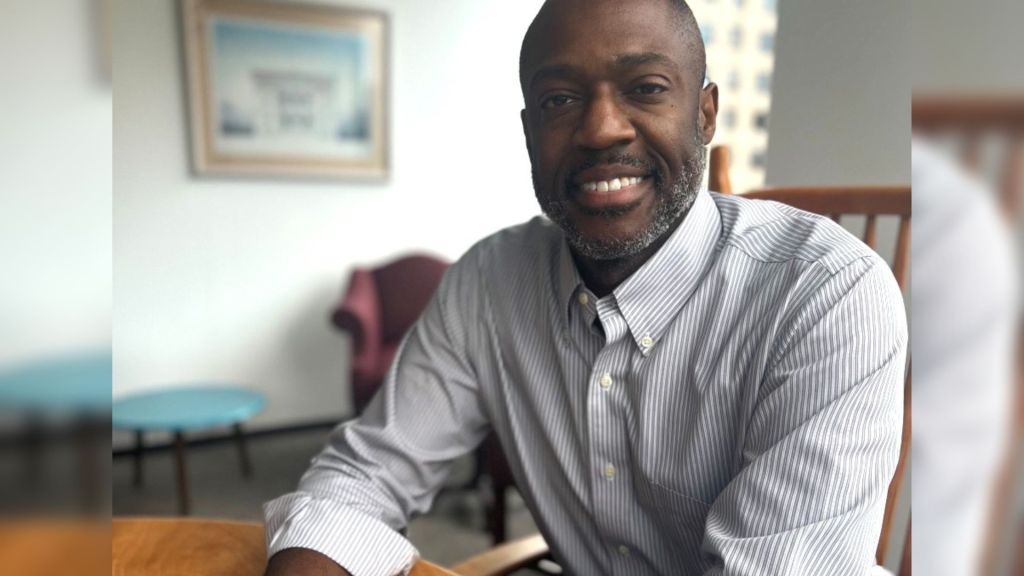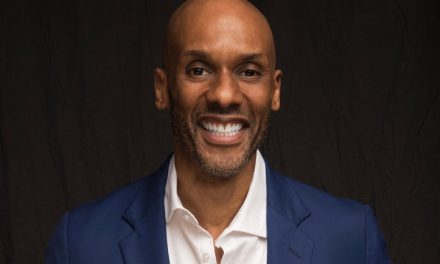By Mylika Scatliffe
AFRO Women’s Health Writer
Relatives have been taking care of sick family members since the beginning of time, even if they aren’t recognized as caregivers.
Founded in 1993, the Caregiver Action Network (CAN) is a non-profit organization headquartered in Washington, D.C., with a mission is to bring awareness, garner respect and offer support for people whose daily work is caring for family members who cannot take care of themselves.

PHOTO: Courtesy photo
“The main reason for our research and existence is that when we started there was not a concept of a caregiver outside of those that provided paid care in a congregate setting. There are so many individuals who put their heart and soul into caring for loved ones every day, and are doing it for zero pay,” said Marvell Adams Jr., CEO of CAN.
Adams is one of a team of nine at CAN, and each of them has a personal story that fuels their passion for the work that family caregivers do. Each member of the team, including the board members, have a unique perspective on what it takes to put your all into being a caregiver and the difficulties that come with it.
Adams’ journey began as a teenager when his mother had a stroke and he, along with his father, was responsible for caring for her at home.
“My mother was not able to work of course, so my dad had to, and I would support her at home when she was doing physical therapy. Once I was able to drive, I took her to appointments and attended to whatever she needed during her recovery,” said Adams. He had a second opportunity to care for his mother when she had major surgery after she sustained a shoulder injury after a fall on the job.
The catalyst for Adams’ passion for caregiving was, in part, witnessing how his mother was treated in the hospital during shoulder surgery recovery.
“She was in the hospital for a few days, and I remember having to ask the nurse– who seemed perfectly capable of coming to help– several times to bring my mother pain medication. The delay was so bad that it got to the point that she was crying from the pain,” Adams recalled.
“Once I grew up, I learned there are protocols around this type of thing and what happened to my mother should not have happened,” Adams continued. “But we recognize the needs of people of color and women of color are often not heard in acute care situations, which leads to poor health outcomes.”
Lack of insurance or funding and distrust in medical facilities or health providers are just a couple of many reasons family members take on caregiving. Societal and cultural pressures and expectations give more cause to step into the role.
Adams was a caregiver several times during his youth.
“My older brothers moved out by the time I was in middle school, so I was essentially an only child by about age 11. Both my parents worked and during the time between middle school and leaving for college, my mom had three major health events,” said Adams. “I helped my mother throughout middle school and only since joining CAN, as its CEO, have I come to understand it was more than just doing what a son should do,” said Adams. “I was a family caregiver, and it was not easy.”
According to the U.S. Bureau of Labor Statistics, “of the 37.1 million eldercare providers in the U.S. age 15 and over, the majority (59 percent) are women. In terms of age, people 45 to 54 (20 percent) and 55 to 64 (21 percent) are the most likely to provide eldercare, followed by those ages 65 and older (15 percent). Sixty-one percent of eldercare providers are employed.”
Terri Buchanan, 59, of Forest Hill, Md. has been caring for her sister since she began experiencing complications from cancer treatments three years ago.
“She began experiencing side effects including memory loss, disorientation and balance problems that increased her risk of falling,” said Buchanan.
Buchanan, like Adams, began her journey with caregiving when her mother had a stroke when she was a teenager, just as she was graduating high school. As the youngest of eight children, when her mother became ill she was the last and only child living at home. Buchanan cared for her mother for 19 years, while going to college and then working full time until her mother passed away in 2007.
“All of my other siblings had gotten married or moved out and had children of their own. They would come in and assist if I had to go away for work or went out of town, and there was never really a discussion of her living anywhere else. I was the only one at home, so it kind of automatically fell to me,” said Buchanan.
Today, Buchanan currently works from home so she has more capacity and flexibility than her brothers and sisters to take on her sister’s care, but she is frank about the challenge and sacrifice involved.
Her sister is currently in a skilled nursing and rehabilitation facility, but there are still appointments, phone calls, taking care of her sister’s home and bills, and visits to the rehabilitation facility at least every other day, all in addition to Buchanan’s own full-time job and personal life.
She says she doesn’t regret anything she has done for her mother or sister, but she sometimes has to deal with feelings of resentment.
“I actually have two full time jobs. My paid day job and taking care of my sister. And while my siblings have always been helpful, I don’t think they don’t truly understand what truly goes into taking care of my sister, or what it took to take care of my mother. Anything that had to be done, was viewed as just one more thing I can handle because it always got done,” said Buchanan. “Sacrifices are involved. I’ve never lived alone. Many days I don’t have time to go to the gym, cook for myself, or get a full night’s sleep.”
Whether it is a cultural expectation of “family takes care of family,” or a practical matter of not being able to afford care any other way, it is work that should be recognized as such.
Adams shared the following tips for people responsible for the care of family members:
- Recognize yourself as a caregiver. You are not just a son or daughter, sibling or spouse. Even if you’re not working in a facility, you are a caregiver and should recognize and identify yourself and be respected as such.
- Know what you are up against and know your limitations. The difficulty is not always in the task of caregiving. It’s often in everything that goes along with it.
- Give yourself grace. Sometimes you might be late for events or gatherings. And that’s okay.
- Research resources that are appropriate for your situation. Caregiving does not happen in a vacuum and each situation is unique. There are other people to connect with through support groups, employee resource groups and organizations like the Caregiver Action Network.
- Remember that caregiving is often cyclical and episodic. Someone with a disease like cancer may go into remission and caregiving is not needed for a while. If it comes back, caregiving is needed again.
- Be prepared. Always have information you may need at hand. You can’t always control what happens from day to day, and it helps to prepare in advance for whatever you can.
- Recognize that if you don’t take care of yourself, you won’t be good to anyone else. Schedule things for yourself, whether it’s doctor appointments, workouts, manicures or time with friends or significant others. You cannot pour from an empty cup.
- Create a routine and stick to a schedule as much as possible.
- Remember, superheroes are fictional. Heroic behavior is not expected every day. We are not meant to work ourselves into an early grave.
- Be on the lookout for signs of depression. Solo caregiving can be isolating.
- Take care of your mental health. Seek therapy or whatever constructive, legal outlet is helpful.
“Caregiver guilt can be significant and inescapable. As a caregiver, you may feel frustration, anger, or resentment about taking care of someone who might have given you life or is responsible for helping to get where you are, but you must make space for yourself,” said Adams. “You can’t give what you don’t have.”
For more Information and resources, visit caregiveraction.org or call 1-855-227-3640. The website has a chat feature and family caregiver’s toolbox.
The post Caregiver Action Network: Advocating for the caretakers in the family appeared first on AFRO American Newspapers.










